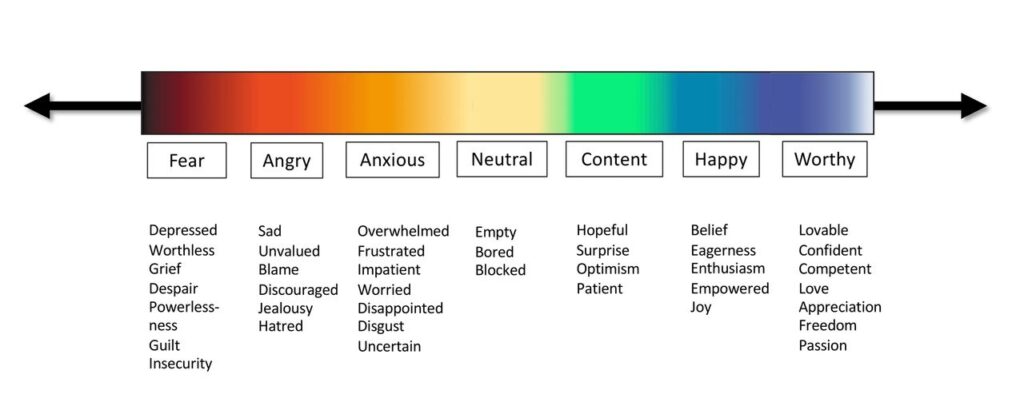Which way do you guide your organization – Success or failure?


All organizations and academic institutions want to succeed. How organizations define success may vary but they all have a shared goal where achieving their organizational, department and personal goals is paramount.
Thus, leadership teams spend significant time within their planning meetings strategizing how to achieve their ambitious annual organizational vision and goals.
Keys To a Successful Organization
There are standard understandings of what it takes to achieve organizational success. These include all departments having a clear vision of organizational direction and expectations, a department plan including SMART goals, apt execution of the plan, and the right people and resources to achieve the desired objectives and outcomes.
But what if you have the right people but they are not at their best?
Historically, employees either performed or didn’t but now organizations and institutions realize they can positively impact the wellbeing of the workforce or student population. The best-designed plans will have little ability to be executed with individuals who are stressed, sick or do not have the emotional intelligence or social management to implement the plans.
Until recently, focusing on “fixing” the workforce or student population alone was enough. If an employee would not perform adequately, they would be given additional training or even reprimanded without changing the style of leadership.
However, more recent research has shown that we as leaders have a tremendous impact on our staff and students’ stress level and thus performance and commitment to work. Kimberly Schonert-Reichl’s research showed that students with the highest cortisol levels had teachers with higher cortisol compared to their peers; thus stress is contagious.
The impact of this finding on organizational leaders and college professors is significant. As executive teams are developing plans for success, they must include support, encouragement, and resources for strengthening their entire culture. There should also be consideration given to the stress leaders experience, given the studies showing stress is contagious.
Here is the best part: If stress is contagious, this suggests calmness, peace, and other positive attitudes are also contagious!


Why is a positive attitude important in the workplace for your organization success
Given leaders’ ability to impact the positive or negative momentum within the organization, it makes sense to take time to pause and evaluate. One way to evaluate this is to be aware of whether your team has positive or negative momentum (see diagram) towards attaining their goals.
For instance, if there is a lot of worry about deadlines, outcome expectations, etc. then this could suggest anxiety, which has negative momentum. As a leader, you need to explore the reason for what the team is feeling in order to come up with a strategy to create a more positive workforce.
If your team or classroom approaches problems with eager anticipation and interest, it suggests they are happy and this will impact their perspective while looking at a new challenge. This positive attitude is necessary in order to succeed.
Henry Ford said, “Whether you think you can, or think you can’t – you’re right”. Neither organizations nor individuals can achieve their goals if they don’t think they can as they are too focused on fears and failures, which creates resistance. Negative emotions are distractions from solutions keeping us from success. Self-efficacy defines how an individual is able to manifest their own success.
Do frequencies affect emotions?
This can be explained by new research showing emotions carry vibrational frequencies. Each emotion has its own frequency. Emotions such as fear hold low vibrations whereas love has a higher vibration. We want higher frequencies because they make us feel positive emotions.
We all have moments of being blinded by fear but as these are low vibration emotions they will only produce similar vibrational outcomes that are undesirable. Insecurities, stress and low morale can reinforce a negative attitude. The important question here is how quickly do you recognize this and pivot? When a negative thought enters our mind, it is important to not let these negative emotions cause us to freeze, become stagnant and immobile.
Instead, we want to lean into our concerns, having the emotional intelligence to recognize that just as easily as negative thoughts can enter our mind, positive thoughts can too. It takes practice. Thinking positive thoughts and believing in our capabilities is a skill set we can nurture and grow.
Journaling within Ajivar can help us gain more awareness of what we are telling ourselves. In fact, Ajivar’s artificial intelligence can give you insight into your emotions during journaling. These patterns help us consciously and intentionally shift our thoughts, feelings, and emotions.
Carol Dweck Growth Mindset
Academic institutions and organizations that grow successfully understand that having the growth mindset, versus fixed, is an essential strategy for navigating change. Carol Dweck of Stanford University showed how those employees who had a growth mindset, believing they were becoming smarter through their attitude and openness to grow, showed higher achievement. Change may be inevitable but your belief about change being positive or negative is up to you.
Why Emotional Intelligence Is Important in Leadership
Organizations and institutions that invest in leaders’ emotional intelligence will navigate change more successfully. As you guide your organization through the murky waters of change, having a guiding light of a total understanding of the factors that lead to success will comfort and reassure you as leaders. You will come to understand that the other side of uncertainty will likely be exactly where you cast your vision. Confidence increases when we believe we are interconnected and cannot achieve success without each other. It requires a collective approach and the right attitude to sustainable success!
Final thought
Ajivar can help your organization focus on success as it moves into the future. Posimations are a source of encouragement when self-efficacy is low. We all need these reminders on occasion. Feeling better about ourselves will also have a positive impact on raising our energetic frequency. As we journal within Ajivar’s app, our emotional intelligence increases with each progressive insight.
Related Posts


How To Increase Emotional Intelligence? 5 Ways to Increase Your Emotional Intelligence
High emotional intelligence or EQ, is one of the traits of successful people, as those


What Is Emotional Intelligence And Its Importance In The Workplace?
Emotional intelligence is the capacity to understand and manage emotions in both ourselves and in


How To Develop Emotional Intelligence Just In A Few Steps
Emotional Intelligence (EQ) is the ability to identify and manage your own emotions and those


The Power of Mindfulness
Emerging research has shown incredible benefits of practicing mindfulness on a daily basis, particularly meditation.